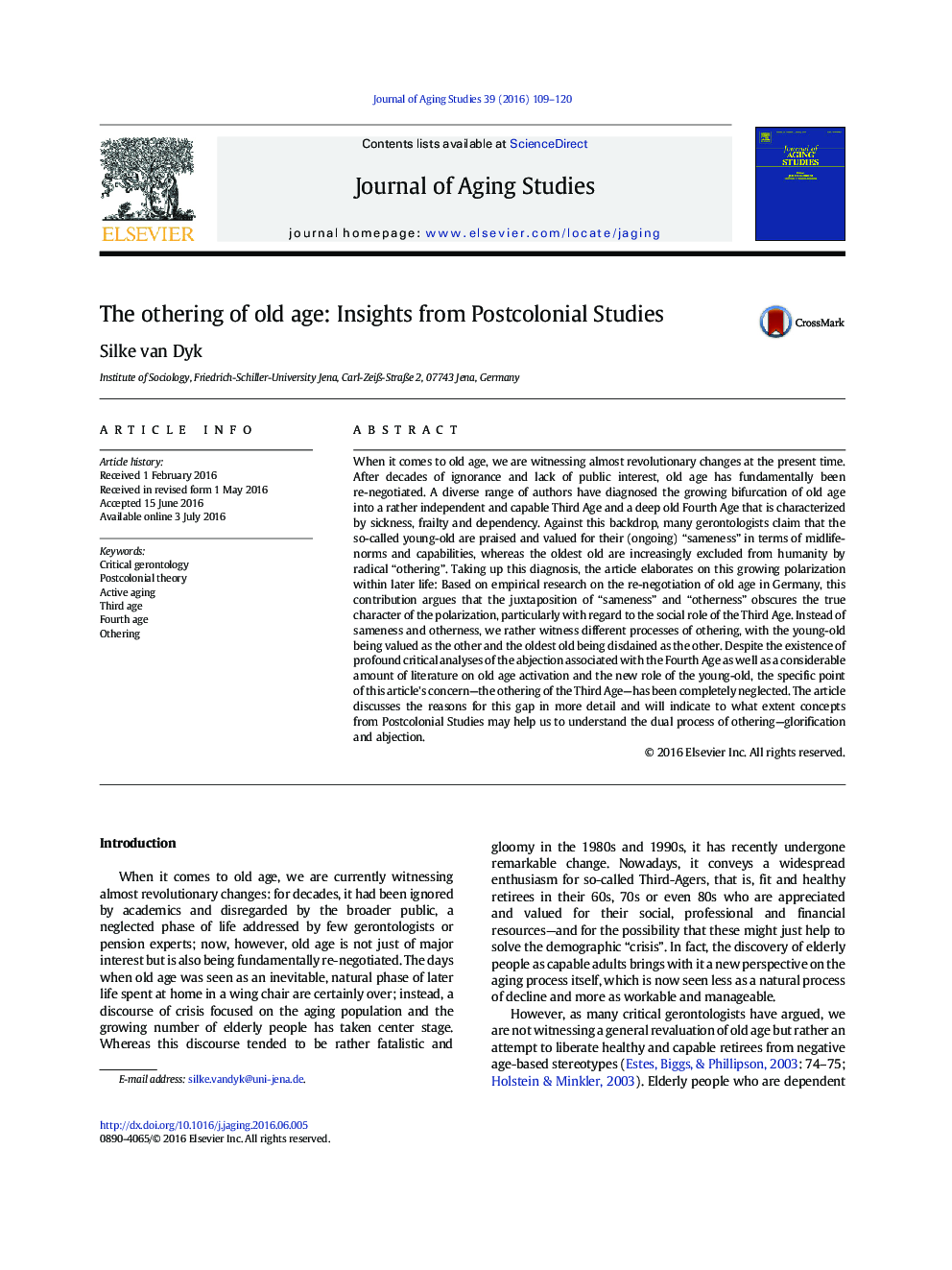| Article ID | Journal | Published Year | Pages | File Type |
|---|---|---|---|---|
| 5121656 | Journal of Aging Studies | 2016 | 12 Pages |
When it comes to old age, we are witnessing almost revolutionary changes at the present time. After decades of ignorance and lack of public interest, old age has fundamentally been re-negotiated. A diverse range of authors have diagnosed the growing bifurcation of old age into a rather independent and capable Third Age and a deep old Fourth Age that is characterized by sickness, frailty and dependency. Against this backdrop, many gerontologists claim that the so-called young-old are praised and valued for their (ongoing) “sameness” in terms of midlife-norms and capabilities, whereas the oldest old are increasingly excluded from humanity by radical “othering”. Taking up this diagnosis, the article elaborates on this growing polarization within later life: Based on empirical research on the re-negotiation of old age in Germany, this contribution argues that the juxtaposition of “sameness” and “otherness” obscures the true character of the polarization, particularly with regard to the social role of the Third Age. Instead of sameness and otherness, we rather witness different processes of othering, with the young-old being valued as the other and the oldest old being disdained as the other. Despite the existence of profound critical analyses of the abjection associated with the Fourth Age as well as a considerable amount of literature on old age activation and the new role of the young-old, the specific point of this article's concern-the othering of the Third Age-has been completely neglected. The article discusses the reasons for this gap in more detail and will indicate to what extent concepts from Postcolonial Studies may help us to understand the dual process of othering-glorification and abjection.
